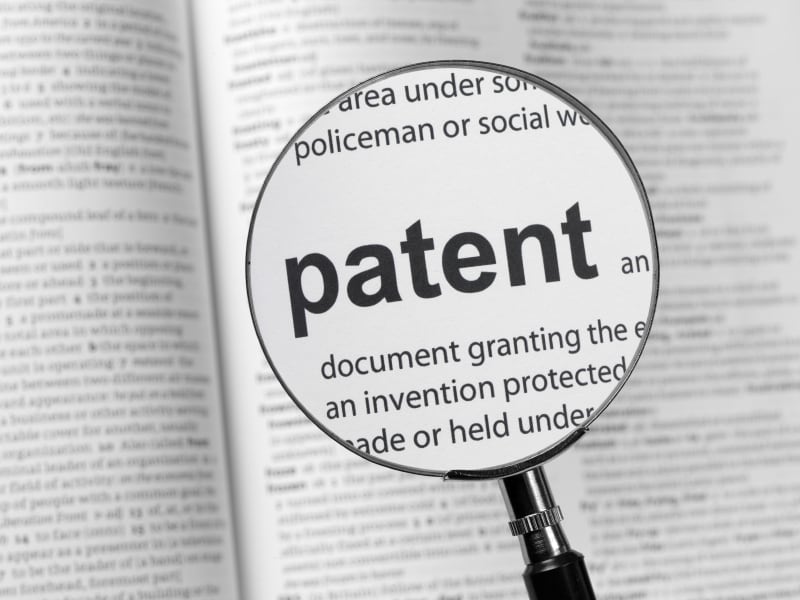From borrowing science from other ingredients to patent trolls and piggy-backing on other company’s positive new dietary ingredient (NDI) applications, the dietary supplements industry has a history of IP theft, said Majeed.
Speaking with NutraIngredients-USA following Sabinsa’s recent announcement that is has received approval for seven new patents (taking the company’s global patent portfolio to 87), Majeed said that there seems to be little to no industry efforts to look at the issue of IP protection.
‘Short-sighted’
“It’s almost every man for himself,” he said. “People may take note of any press release announcing an infringement or lawsuit, but rarely contemplate getting into a discussion about it.
“The industry has a history of IP theft. Sabinsa has dealt with it from the beginning, and the rampant ‘borrowed’ science practice is probably what established the practice of IP theft in the supplements industry: manufacturers were fine with using products relying on science not actually done on that ingredient.
“Now we’re seeing follow-on products infringing on NDI’s, which is disturbing because if the manufacturing process isn’t identical, the product isn’t the same. Ultimately the consumer pays the price in not getting the results they expect and deserve. And the industry pays the price in undermining innovation, which is what drives new product sales. It’s just short sighted.”
Marc Ullman from law firm Ullman, Shapiro & Ullman LLP, agreed that there has definitely been an increase in IP infringements and said that the industry is not talking about the issue enough. “‘Borrowed science’ is an industry euphemism,” he told us. “It’s not borrowed, it’s stolen science. Companies are misappropriating science from patented ingredients.”
A costly exercise
Defending a patent can be costly, with some estimates from the American Intellectual Property Owners Association indicating that it costs about $1 million to defend a patent when the amount at risk is less than $1 million, and about $6 million when more than $25 million is at risk.

High profile cases in recent years in the supplements industry include Thorne Research moving to defend a CoQ10 patent to which it recently acquired exclusive rights, and Natural Alternatives International suing GNC and two other companies over alleged patent infringement for the manufacture, distribution and sale of a pre-workout supplement featuring high levels of beta-alanine.
Successful defense of a patent will have a knock-on effect on the per bottle price that consumers pay, said Majeed. “Thus far we’ve enjoyed a marketplace where rising healthcare costs gave the dietary supplement industry a boost. It would be a shame to see our costs rise and consumer confidence decrease due to negligence or unwillingness to respect IP.
“It’s unfortunate that the industry does not actively discourage IP theft. Frankly, ingredient companies may not have the reach to educate and inform their customers about IP issues and how that impacts product quality, safety and efficacy, let alone consumers. This is where media, industry trade organizations and tradeshows can be a vital platform to increase IP awareness.”
Ullman, however, questioned whether trade associations are in a position to address the issue, given that some of the member companies may be involved in the practice of IP infringement. “Companies like Sabinsa need to speak out,” he said.
‘The buyer becomes part of the infringement’
Sabinsa is indeed taking a more active stance in getting the IP protection message out. It has announced it will bolster its legal teams in the jurisdictions where the actual infringements are occurring. Despite such efforts, Majeed said that supplement manufacturers may not be as aware of patent infringement issues as they should be.
“There are a lot more suppliers coming out of India and China than when Sabinsa started 26 years back,” he said. “From time to time we see suppliers who intentionally by way of infringement supply ingredients patented by Sabinsa. The buyer in this case is part of the infringement, albeit often unknowingly deceived by such unscrupulous suppliers. In such cases we do make every attempt to educate the buyer before taking legal action against them.
However, Ullman questioned how ‘unknowing’ buyers are. “Buyers are looking at price,” he said. “The enquiry ends there.”
‘Take the gloves off’
Majeed said that Sabinsa relies on the science behind its products to convince customers to use its ingredients. “When a manufacturer doesn’t want to pay the price for R&D, this type of infringement activity occurs. The price of patented ingredients continues to increase in order to protect against infringement, ultimately benefiting those who use such patented ingredients by stopping companies from selling cheaper, inferior versions, but certainly it’s a never-ending cycle.”
“It’s time to take the gloves off and point the finger at unscrupulous buyers willing to take non-patented ingredients and use another company’s science,” said Ullman.

Majeed also raised questions about the contract manufacturing side of the industry, noting that, when ingredient prices become an issue, contract manufacturers may substitute generic materials into formulations despite quoting clients on the basis of using a trademarked/patented ingredient.
“We’re uncovering a few of these types of cases and, make no mistake about it, we will be forced to take action on such contract manufacturers,” he said.
Labeling
Despite “rampant growth” in IP infringements, Majeed, said the company has seen one encouraging development: companies coming forward and placing patent numbers and trademarks on their labels. “Sure, this has been happening for years, but we’ve seen a statistical growth just in the past two years alone for many of the Sabinsa IP ingredients, and we certainly welcome this,” he said.
“What we don’t welcome is the substitution of our patented ingredients by contract manufacturers and the ‘borrowing’ of our science for use by marketing companies that are not even using our ingredients! Both of these examples are on the rise and we’re carefully taking steps to deal with this, across the globe.”
So how do we stop this? For issues like the ‘follow on’ NDIs, FDA needs to “drop the hammer” on the offending companies, said Ullman, “and companies that are complying need to call out this kind of behavior”.
